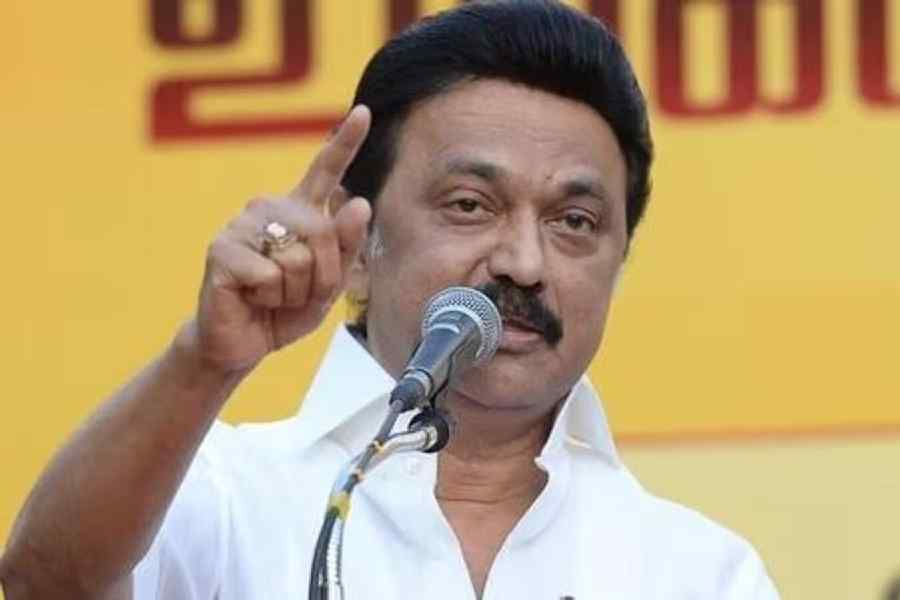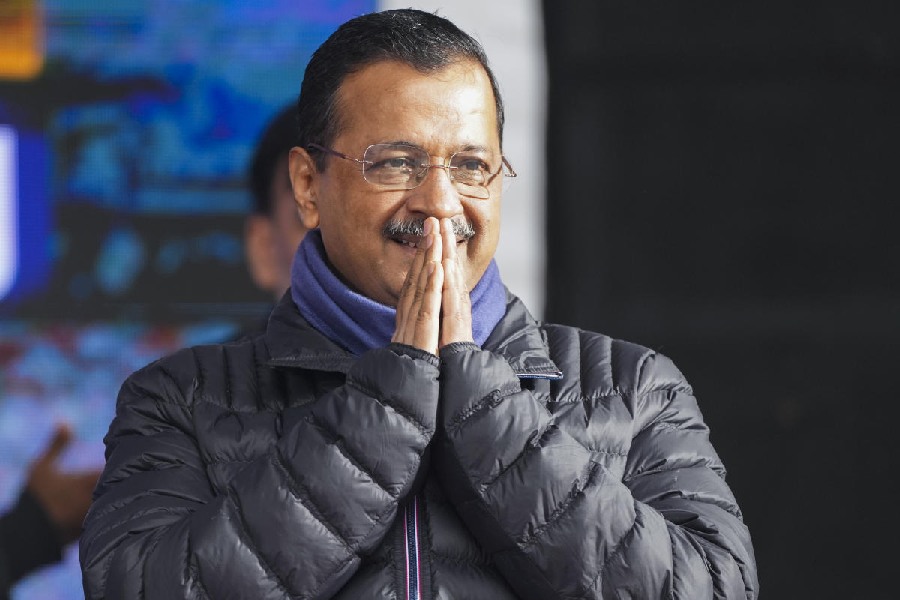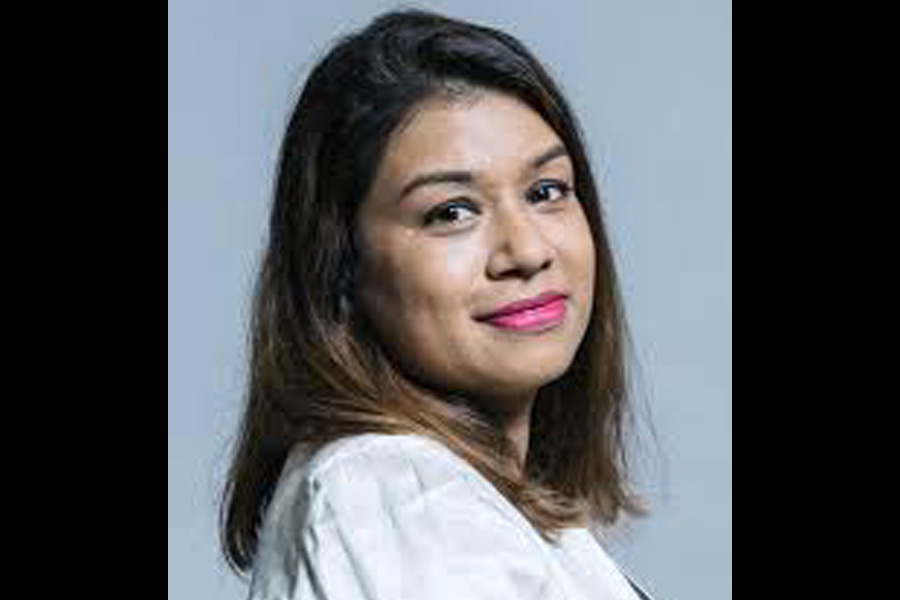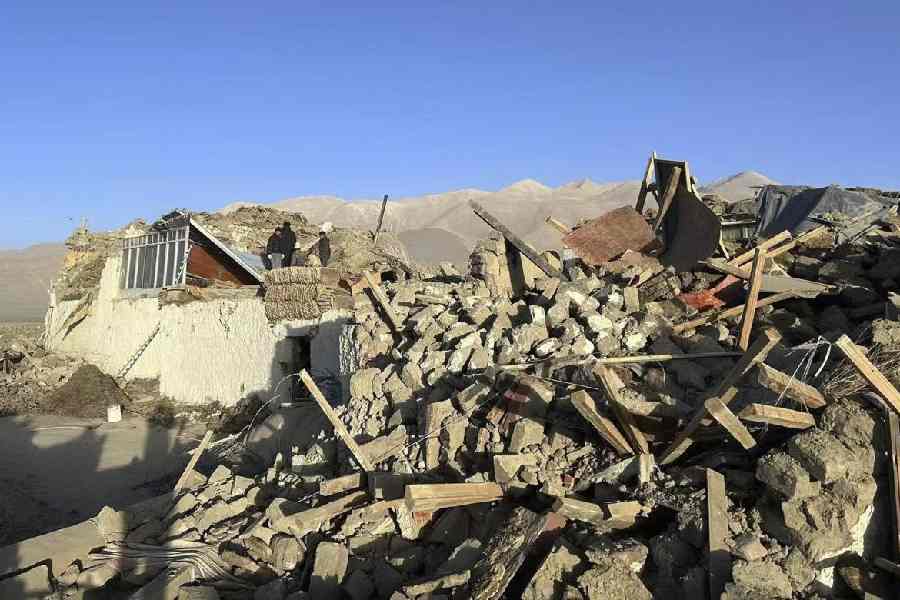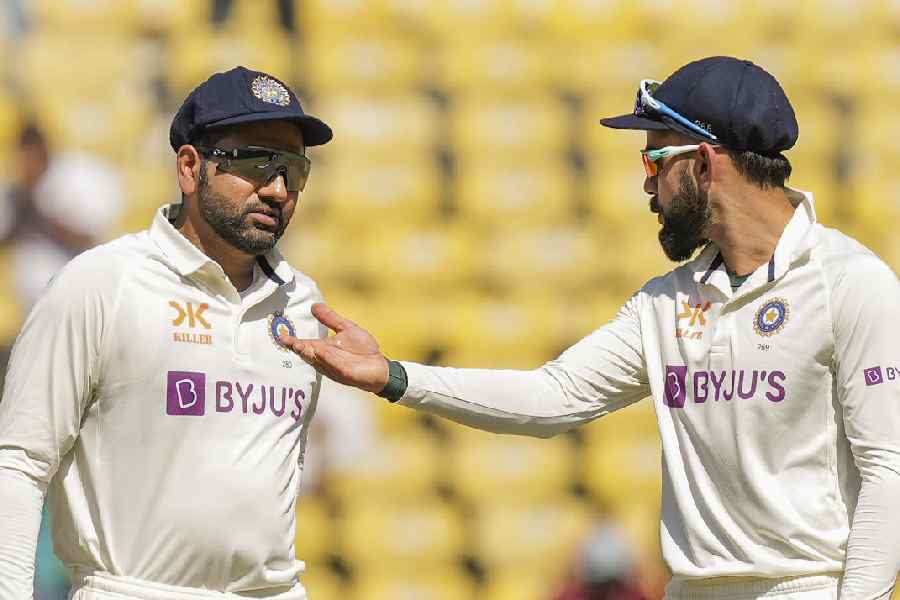The third meeting of the INDIA partnership ended here on Friday with leaders of 28 Opposition parties resolving to collectively take on the BJP in next year’s general election and forming a coordination committee to conclude seat-sharing arrangements at the earliest.
They also decided to launch a nationwide campaign against the Narendra Modi government’s misrule with the common slogan of “Judega Bharat, Jeetega INDIA” (India will unite, INDIA will win).
In a show of unity after the two-day session, leaders of most of the 28 parties addressed a joint news conference. Mamata Banerjee could not attend the event as she had a flight to catch.
“This stage represents 60 per cent of the Indian population,” Rahul Gandhi said, his eyes sweeping over the Opposition leaders converged in Mumbai for the fledgling alliance’s third meeting, after previous editions in Patna and Bangalore.
“If all these parties unite and contest the elections together, it is impossible for the BJP to win,” the Congress MP added.
A source said Rahul had delivered an impassioned speech at the closed-door session, where he described Prime Minister Narendra Modi as the “most corrupt politician”.
At the news conference, the Congress leader repeated his accusation about the Prime Minister’s proximity to the Adani group and alleged that Modi was extracting money from the poor and transferring it to a few.
“The INDIA alliance will defeat the BJP,” Rahul asserted.
The possibility of a change of guard at the Centre was the main theme of the short addresses that Opposition leaders — from Uddhav Thackeray and Lalu Prasad to M.K. Stalin and Arvind Kejriwal — delivered at the news conference.
Most of them castigated the BJP government for failing to tackle unemployment and price rise, and for unleashing central agencies like the ED and the CBI on Opposition leaders.
Delhi chief minister Kejriwal said the alliance was not only of “26 or 28 parties” but of the “entire country of 140 crore people”.
“Those opposing INDIA are getting rattled as we have come together,” Shiv Sena (UBT) chief Uddhav said after his son had read out the three resolutions adopted — on early adoption of a seat-sharing arrangement, nationwide rallies and a coordinated campaign.
“We had two days of very fruitful discussions. We took some good decisions and some committees were formed. We are committed to fighting dictatorship and corruption,” Uddhav, one of the hosts of the conclave, added.
Some of the takeaways from the meeting:
• A 14-member coordination committee has been formed and tasked with working out a seat-sharing formula. Its members include K.C. Venugopal (Congress), Sharad Pawar (NCP), Tejashwi Yadav (RJD) and Abhishek Banerjee (Trinamul).
• A 19-member campaign committee will oversee the holding of public rallies. Possible venues such as Patna, Guwahati, Nagpur and Bhopal were discussed.
• Three working groups — for media, social media and research, respectively — have been formed with representatives from various parties.
• Some political parties such as Trinamul, JDU, RJD, Samajwadi Party and the AAP emphasised the importance of a seat-sharing formula and proposed that it be worked out at the earliest, keeping in mind the possibility of the polls being advanced.
• As the alliance discussed the possible venue for its next meeting, the Congress expressed eagerness to host the event in Bhopal. A source said that CPM general secretary Sitaram Yechury opposed the suggestion.
• The issue of “one nation, one election”, favoured by Modi, was discussed. It was agreed to take this up together at the five-day Parliament session beginning on September 18.
• The parties discussed the possibility of concerted attacks from the BJP in the run-up to the polls and agreed to stay united without fear.
Rahul mentioned a key achievement by the alliance partners since their first meeting in Patna.
“The real work in this alliance is the relationships that are forged between the leaders…. And I can say with confidence that these meetings have done a huge amount in building rapport between all the leaders and ensuring that all of us work together as one,” he said.
“There are differences, of course, but I’m extremely impressed by the way those differences are minimised and ironed out.”
Many of the speakers outlined the broad contours of the agreement about a collective fight and stressed the positive vibes among the alliance partners. But critical questions on coordination, seat-sharing and joint campaigning remained unanswered.
“No formula on seat-sharing has been worked out.... This is a tricky issue and the negotiations can continue for months. I’m not sure when it will be completed,” Manoj Bhattacharya of the RSP, who attended the conclave, said.
That some of the leaders left the news conference midway to catch their flights fed into the scepticism among some about the future of the bonhomie the alliance tried to project.
With the Opposition leaders taking no questions at the news conference, there was no clarity on the progress made on some of the decisions — such as having a secretariat in Delhi and bringing in more partners — taken at the last meeting in Bangalore.
The absence of a timetable on how the coordination committee would function -- no one could share the date and venue of its first meeting — seemed to belie the Opposition’s optimism about the seat-sharing arrangements being worked out early.
“Don’t worry about all this.... Senior leaders like Sharad Pawar, Mamata Banerjee and Uddhav Thackeray are involved in the discussions. They are aware of the problems but they also have solutions,” said Jitendra Awhad, NCP general secretary and Pawar confidant.


